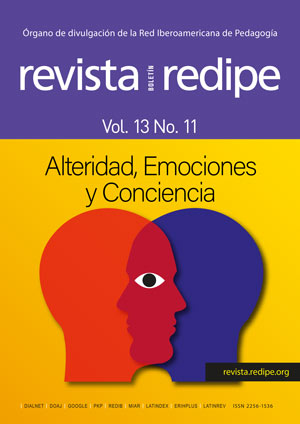Towards a “socio-natural” appropriation of knowledge
Main Article Content
Keywords
Social appropriation of science, Socio-natural appropriation, Otherness, Pluriverse, Interonomous consciousness, Intertwined life of humans and non-humans
Abstract
The “social” appropriation of knowledge (ASC) could be more edifying if it gained socio-natural connotations. It would not be a merely “social” appropriation in the sense that it is developed, with state or private support, by communities and in order to strengthen the living conditions of these as human entities. Once communities and social groups are thought of and assumed as socio-natural entities, by and for interconnected life, it would confer both the appropriations of knowledge and knowledge, including their own, as well as as well as the interventions involved in these, an ethical-political character that enhances the fabric of humans and non-humans of which we are part, that world of worlds, of biophysical beings, of natures, worldviews, universes, spiritualities and cultures that make up the pluriversal body of life.
References
Bilveny, N. (2015). Justicia compasiva. La justicia como cuidado de la existencia.
Davila R.P, (2020). Apropiación social del conocimiento científico y tecnológico. Un legado de sentidos. Trilogía Ciencia Tecnología Sociedad, vol. 12, núm. 22, pp. 127-147.
Dussel, E. (2001). La vida como criterio de verdad. Revista Devenires, No. 4. México.
Escobar, A. (2003). «Mundos y conocimientos de otro modo». El programa de investigación de modernidad/ colonialidad latinoamericano. Tabula Rasa. Bogotá - Colombia, No.1: 51-86
Gutiérrez, A.L y otros (2018). Apropiación social de conocimiento: tensiones y posibilidades. Revista Trabajo Social Nos. 26 y 27, pp. 113-132
Ministerio De Ciencia, Tecnología E Innovación (2021). Política Pública de Apropiación Social del Conocimiento en el marco de la CteI. Bogotá. Pg 49.
Neüman, M. I. Y otros (2019). Indicadores para medir apropiación social de las TIC desde el pensamiento decolonial. Razón y palabra, Quito, Vol. 22, no. 103.



